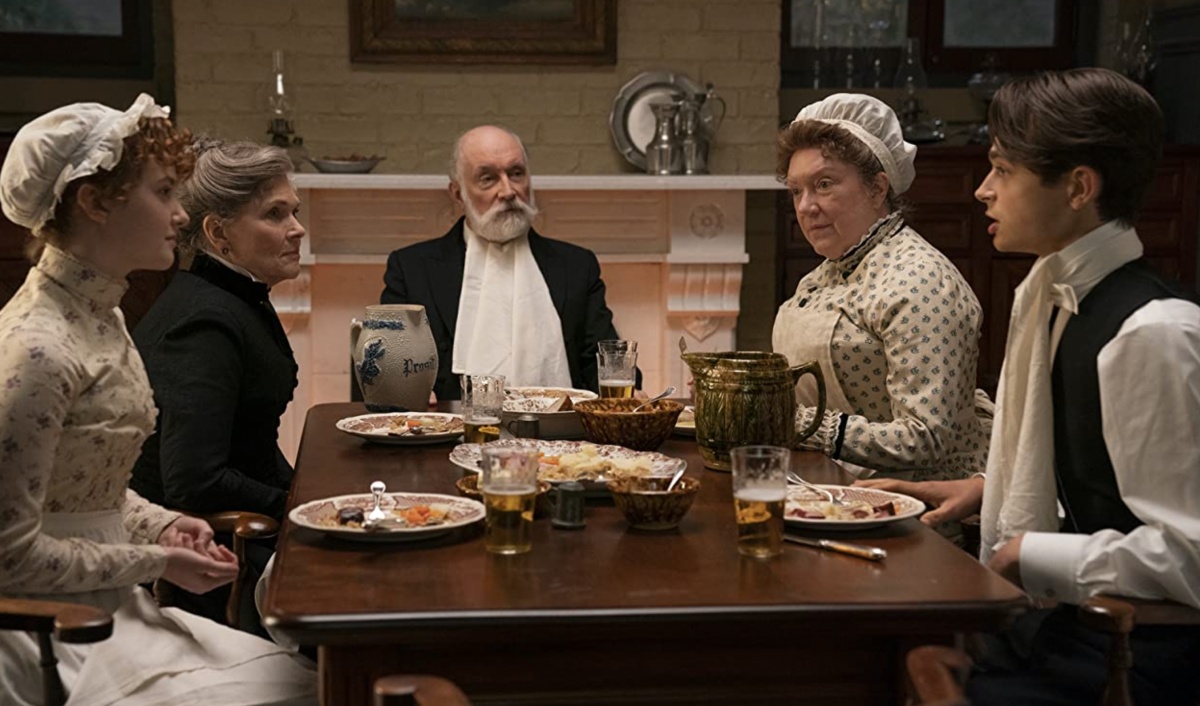‘The Gilded Age’ and the Great Midwest Wildfires of 1871

Despite my complex feelings on The Gilded Age (they have made stanning robber barons too easy), I do like how the show brings attention to moments and people in history that may have been forgotten. In the latest episode, we find out that one of the servants, Jack Treacher (Ben Ahlers), lost his mother in the Peshtigo fire of 1871.
Being unfamiliar with this moment in history, I went happily down the rabbit hole, and this is what I found. According to the National Weather Service, from Sunday, October 8 to Tuesday, October 10, 1871 a series of fires hit the midwest that caused the deaths of thousands of people, now called The Great Midwest Wildfires of 1871.
On the 8th, several fires occurred: the Great Chicago Fire, the Great Michigan Fire, the Port Hurton Fire, and the Peshtigo fire. Despite Chicago’s being the most well known of the bunch, it is actually Peshtigo that is on record for being the deadliest wildfire in known history, with an estimated death count between 1,200 and 2,500. The one that comes closest is the Kursha-2 Fire in the Soviet Union, which took place 65 years later.
What we know of the fire is due to Reverend Peter Pernin, whose firsthand accounts illustrated the brutality and loss of what occurred. He wrote down the personal stories of those present and the stories of many who passed, like that of the Kelly family:
“Terance Kelly, his wife, and four children lived in the upper Sugar Bush. When the fire came with the terrible wind and smoke, the family became separated. Voices could not be heard above the roar of the fire. Mr. Kelly had a child in his arms, as did Mrs. Kelly. The other two children clung to each other. In search for safety, each group lost track of the others. The next day, Mr. Kelly and a child were found dead nearly a mile from his farm. The mother and another child were safe. The other children, a boy and a girl, five, were found sleeping in each others arms near the farm. The house, barn, and all the outbuildings had burned to the ground.”
-Reverend Pernin, via National Weather Service
The reason for the fires is assumed to have been a combination of unusually dry weather and the small fires that usually were part of the “slash and burn” to clear forest for farming and railroad construction. The small fires grew, and the winds took them further and along the midwest.
Following the Peshtigo fire and others in the midwest, it changed the way companies handled clearing wildlife, and in the case of Chicago, the donation they got from the U.K. started the Chicago Public Library—a free library to help the city in its recovery.
Despite sitting in the totality of all that was lost, I am glad to know this part of our history and the reality that it illustrates about man’s relationship to nature.
(via Weather, image: HBO)
Have a tip we should know? tips@themarysue.com